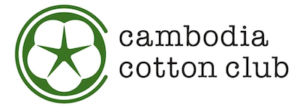When I was researching pesticides for cotton at the Ministry of Agriculture, Forestry and Fisheries (MAFF), the name of Sumitomo Chemical came up. Sumitomo Chemical has "entered into an agreement with Monsanto Company, a leading U.S. seed, biotechnology, and chemical company, to establish a long-term cooperative relationship in the field of crop protection (weed control)," the company said in a 201 The company announced the agreement in a press release in October 2010.
The statement reads, "Monsanto has long recommended the "Roundup Ready System", an effective, economical and simple weed control system that combines the global herbicide brand ""Roundup"" with various genetically engineered "Roundup Ready" seeds that have been given resistance, has been recommended for the agricultural sector for some time. We have incorporated Sumitomo Chemical's lineup of herbicides into the weed control system and are now recommending it as the "Roundup Ready System.
Further releases follow.
"If farmers growing soybeans, cotton, and sugar beets choose to use the seeds and herbicides (including Sumitomo Chemical's products) recommended in this weed control system, they will receive a variety of product support from Monsanto."
It will enable us to meet farmers' needs for a variety of weed problems, including control of weeds resistant to glyphosate, the active ingredient in Roundup."
I wondered why cotton in Japan, so I did some research and found the Tohoku Cotton Project.
Press release from Sumitomo Chemical regarding the Tohoku Cotton Project.
In a press release issued by Sumitomo Chemical in December 2011, the company stated, "Sumitomo Chemical has been providing various chemicals for cotton cultivation in the United States and other countries and has decided to participate in the project from the perspective of contributing to local communities and society. We have decided to participate in the project from the viewpoint of contributing to local communities and society. We would like to contribute to the project by offering pest and weed control solutions for cotton cultivation and, if necessary, obtaining agricultural chemical registrations, and by utilizing our products and know-how accumulated to date.
When we checked the Tohoku Cotton Project website, we found the name of Taishoboseki as the initiator of the project. Taishoboseki is a spinning company specializing in organic cotton. Organic cotton is a material that has not been genetically modified and has been organically grown on farms that have not used pesticides or chemical fertilizers for more than three years," the company says on its website.
What in the world is going on? Why would Sumitomo Chemical, which has a long-term partnership with Monsanto, acquire pesticides for cotton, for example? Sumitomo Chemical is already selling pesticides for horticultural use to combat the "silkworm" and "aphid" insects that are attracted to cotton.
Why would a project initiated by Taishoboseki, which specializes in organic cotton and claims that it does not use pesticides or chemical fertilizers, get involved with Sumitomo Chemical?
I'm doing some more research on Monsanto, Sumitomo Chemical, and the Tohoku Cotton Project.
( to be continued )
